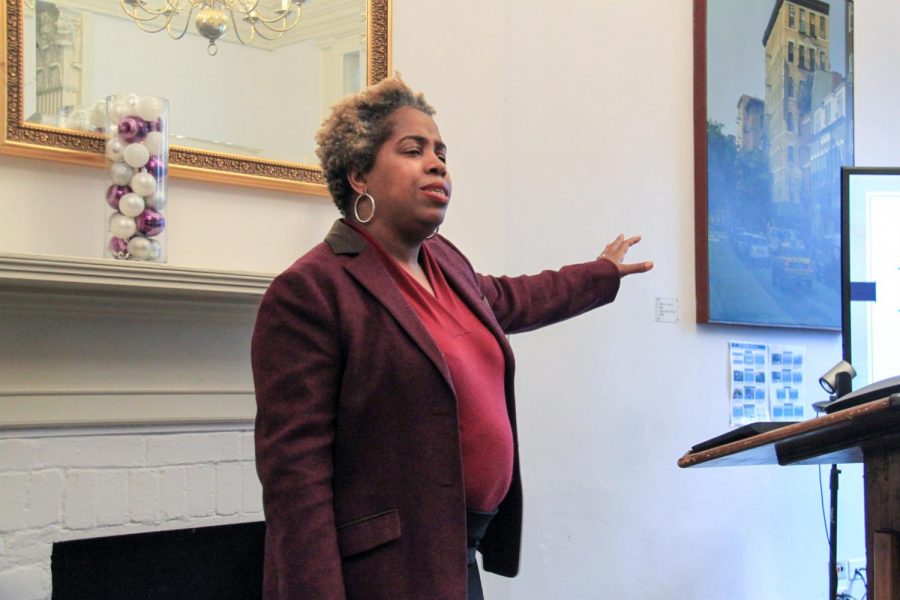Mount Sinai Clinical Instructor and NYU alumna Carolyn Hutson spoke on Tuesday about the dangerous consequences of distrust between minority groups and the medical establishment in the United States.
At the Career Connections at the NYU Silver School of Social Work event, Hutson broke down the history and legacy of these problems, in addition to outlining solutions.
Abuses of marginalized groups by the medical establishment date far back. In the 1800s, NYC physician Dr. Marion Sims unethically experimented on slaves and in the 1900s, U.S. Public Health Services authorized the Tuskegee Experiments, where impoverished African Americans with syphilis were secretly studied and denied treatment. Hutson attributed these instances of institutional racism in the healthcare system to a lingering distrust towards physicians in certain communities today.
“This is not a little town in Mississippi — this is New York City,” Hutson said in her speech. “These biases affect how patients do or do not take their medicine. These people wait until the last moment — when they might drop dead — to receive care from traditional health care institutions.”
According to Hutson, a system of biases keeps communities of color from currently receiving the highest standard of care — an issue that must be addressed. She suggested solutions such as employing social workers in hospitals to mediate between patients and doctors as well as introducing cultural competency classes in medical schools.
One example of bias in healthcare was demonstrated in a 2016 study, which found that white people without medical backgrounds, medical students and residents alike hold false beliefs about biological differences between white and black people, including the incorrect assumption that black people have thicker skin and feel less pain.
“This is a big problem especially with pregnant women because sometimes they can be placed at a lower priority for pain relief during labor,” Liberal Studies first-year Yashita Thota said. “It’s only one manifestation of underlying prejudice and unconscious bias.”
Racial biases in healthcare were addressed in April 2018 when a statue of Dr. Sims was removed from Central Park. However, removing prejudice at the root of society will take more than symbolic measures, according to Hutson.
One of the remaining hurdles are language barriers. One in 15 people in the US are designated as having Limited English Proficiency, meaning they do not speak English as their first language and have a limited ability to read, speak, write or understand English. LEP patients are projected to increase to 67 million people by 2050.
“Many LEP patients do not realize they have a right to a medical interpreter,” Hutson said. “They won’t end up understanding the diagnosis and keep coming back, costing the healthcare industry more money. 49% of LEP patients receive some kind of physical harm as a result of a medical error from language barrier issues.”
Steinhardt first-year Farida Farrag attended the event and recounted instances of acting as a medical translator for her grandmother.
“I went to the eye doctor with my grandma and I had to translate everything the doctor said in Arabic,” Farrag said. “And it’s hard because even though I am fluent in Arabic, there is medical terminology I do not know how to say in Arabic. Which isn’t so easy with the elderly because they can sometimes be impatient. You would think that they would have an Arabic translator.”
Situations like Farrag’s are why Hutson advises more extensive language services, such as video conferences and encouraging patient engagement by taking into account their language and cultural beliefs. Another way to support patients, according to Hutson, is to show them they have power when it comes to the clinical process.
“Instead of saying ‘I think you should try Y’ say ‘Our best course of action might be to try, Y.” Hutson said. “This allows physicians to invite the patient to participate in clinical decisions.”
Hutson emphasized the importance of correcting medical biases as the country continues to evolve.
“[While] incomes of people of color rise, the health issues stay the same. Our country is getting more and more diverse,” Hutson said. “Not getting it right is costing us money. Hopefully, this will change in the future.”
Email Roshni Raj at [email protected]


























































































































































